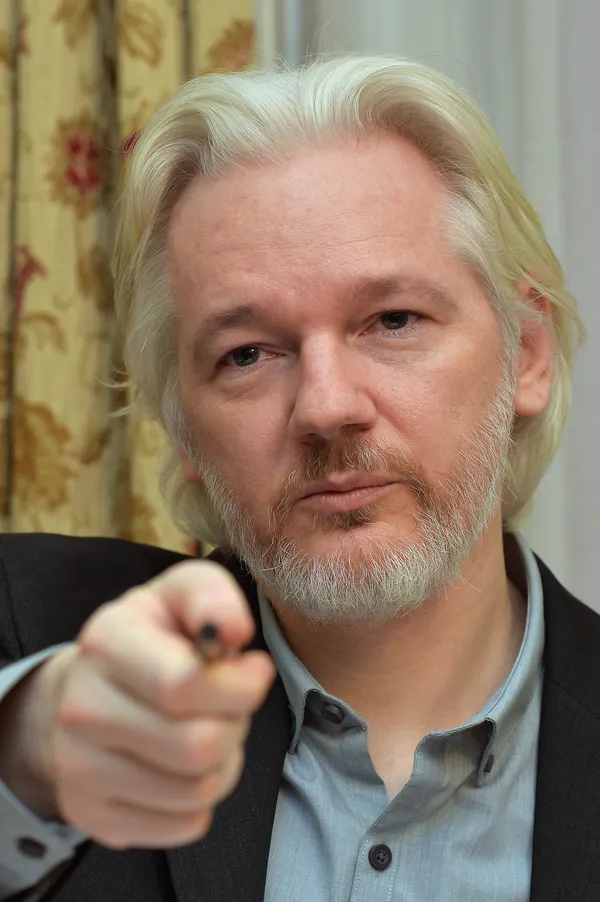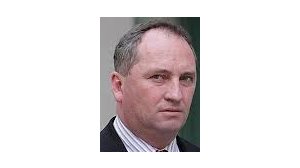
Update, Wed 11 August: I have submitted the included Open Letter to Prime Minister Scott Morrison as an attached PDF file through his "Contact Your PM" form at https://www.pm.gov.au/contact-your-pm. What you can do: Contact Scott Morrison, your local MP and your state Senators and tell them that you think it is about time Julian Assange was properly debated on the floor of our Parliament.

Whilst millions around the world have been protesting for Julian Assange almost nothing has been said for years on the floor of the Parliament of the country of which Julian is a citizen - Australia. This is not because Julian Assange has no support in Parliament. In fact, the "Bring Julian Assange Home" has 26 members. But arcane parliamentary procedural rules have, so far, made it impossible for those 26 supporters of Julian Assange to put his case to the floor of our Parliament. Twice so far, in June and again in August, the Parliamentary Selection Committee has prevented Julian Hill from putting to Parliament his motion (see below) in support of Julian Assange.
What sort of parliament prevents such a large group of supporters of the most famous Australian in the world from putting its case? It is time that ordinary Australians told their local members that this is just not good enough. As I have done below, they must put to Prime Minister Scott Morrison as well as each of their local members: If they are not prepared to raise their voices within Parliament for Julian Assange, then at least allow those who do want to raise their voices to do so. At least allow Julian Hill to put his motion to the floor of Parliament for a proper debate (and not just the 10-30 minutes allowed for each Private Members Motion (PMM) only on Monday mornings - and even that inadequate amount of time has been denied to Julian Hill!).
What have you to fear from a debate on Julian Assange? - Open Letter to Scott Morrison
Dear Prime Minister Scott Morrison, Deputy Prime Minister Barnaby Joyce and Opposition Leader Anthony Albanese,
(I have previously, on 11 March, written another Open Letter to Prime Minister Scott Morrison concerning Julian Assange and have yet to receive a reply. The earlier Open Letter is here.)
I am writing to request that, as a matter of urgency, you allow a motion concerning Australia's award-winning journalist Julian Assange, which was first foreshadowed almost 8 weeks ago by Julian Hill MP, to be put to the House of Representatives, debated and voted upon.
This motion, which is included below as an appendix, was first foreshadowed by Julian Hill on Wednesday 16 June. Last year Andrew Wilkie had also tried to have a motion concerning Julian Assange debated on the floor of Parliament, but was unsuccessful.
So, after all this time, after more than nine years of the illegal detention and psychological torture of Julian Assange, including more than two years of solitary confinement for 23 hours per day at Belmarsh Prison, and as he faces the threat of extradition to face even worse conditions of imprisonment in the United States for the rest of his life, the Australian Parliament has yet to have any discussion longer than the two minutes duration allowed in Question Time about this Australian citizen!
How can this be? With millions of people around the world crying out for the release of Julian Assange, surely our Parliament should be able to find the time to discuss the treatment, by Britain and the United States, of Australia's most famous citizen?
I had naively thought that that a Parliamentary motion only needed a mover and a seconder for it to be put, but this is not the case with Julian Hill's foreshadowed motion.
Apparently, because, even with the "Bring Julian Assange Home" Parliamentary Group having 26 members, Julian Hill's motion has still been designated a Private Member's Motion (PMM). As a PMM it can only be debated on a Monday, that is, if that Monday is not a public holiday and it can only be debated if the Parliamentary Selection Committee, which is comprised of members of the Government and the Opposition, first agrees on the previous Wednesday to let that motion be put!
And even were Julian Hill's PMM to be approved, a total of only one hour and fifty minutes is allowed to debate whatever seven PMMs are approved of by the Selection Committee - an average of less than 16 minutes, and as little as 10 minutes, per PMM.
So far, even this miniscule period of time has not been allowed by the Selection Committee to supporters of Julian Assange to put their case to Parliament . Twice so far, on Wednesday 17 June and, again, on Wednesday 4 August, the Selection Committee has rejected Julian Hill's foreshadowed motion.
Am I to conclude from this that both the Government and the Opposition fear any debate about Julian Assange on the floor of Parliament, let alone a proper debate in which everyone with a view on Julian is allowed to speak?
On the other hand, if you truly believe that you have fully discharged all of your responsibilities towards Julian Assange, then what have you to fear from such a debate? Why not move a procedural motion to allow Julian Hill's motion to be fully debated on the floor of Parliament?
Surely, then, in the course of the ensuing debate, you can show Parliament, Australia and the rest of the world how both Julian Hill and I are wrong.
Yours faithfully,
James Sinnamon
Frankston, Victoria
Appendix: Notice of Motion by Julian Hill MP (first posted here)
MEMBER FOR CLARKE: I give notice that on the next day of sitting (Monday 21/6/21 - JS) I shall move that this House:
(1) notes that:
(a) the trial and extradition of Mr Julian Assange are inconsistent with international law, and Australian legal standards, and contravene the legal rights and protections for which those laws and standards provide;
(b) the United Nations Special Rapporteur on Torture and Other Cruel, Inhuman or Degrading Treatment or Punishment has found that Mr Assange 'showed all symptoms typical for prolonged exposure to psychological torture, including extreme stress, chronic anxiety and intense psychological trauma';
(c) several medical reports find that Mr Assange is in ill-health due to prolonged arbitrary confinement, and indeed the United Nations Working Group on Arbitrary Detention ruled that the 50-week sentence of Mr Assange for bail violation, which formally ended on 21 September 2019, was punitive and disproportionate given the nature of the offence and the usual sentence;
(d) Mr Assange is facing extradition for an alleged political offence, which is expressly prohibited by Article 4(1) of the Anglo-US Extradition Treaty and an abuse of power; and
(e) Mr Assange is an Australian citizen and, if convicted in the US, faces 175 years in prison, which would be in effect a death sentence;
(2) acknowledges that Mr Assange is a publisher and journalist, as recognised by his 2011 Walkley award and 17 other awards for excellence in journalism and promoting human rights, and that his charges:
(a) are a direct assault on press freedom; and
(b) threaten the protection of others who publish classified information in the public interest; and
(3) calls for Mr Assange to be allowed to return to Australia.




 Two Australian MPs - Barnaby Joyce and Andrew Wilkie - are at last trying to do something to get our government to help Julian Assange, who is currently at the mercy of the British establishment, which threatens to hand him over to a secret trial in the United States. See,
Two Australian MPs - Barnaby Joyce and Andrew Wilkie - are at last trying to do something to get our government to help Julian Assange, who is currently at the mercy of the British establishment, which threatens to hand him over to a secret trial in the United States. See, 


 Senator Joyce should comment on the impact of landscape-scale bulldozing of native ground cover and natural land features during the construction of cotton farms and other broad-acre irrigation enterprises, when he calls for damming of the Balonne River in Queensland, in response to the St George floods.
Senator Joyce should comment on the impact of landscape-scale bulldozing of native ground cover and natural land features during the construction of cotton farms and other broad-acre irrigation enterprises, when he calls for damming of the Balonne River in Queensland, in response to the St George floods. The continuing campaign, by Federal Opposition Senator Barnaby Joyce, to dam the Balonne River, ostensibly to mitigate the impact of flooding around St George, has been criticised by environmental and public water-rights advocacy group, Fair Water Use (Australia).
The continuing campaign, by Federal Opposition Senator Barnaby Joyce, to dam the Balonne River, ostensibly to mitigate the impact of flooding around St George, has been criticised by environmental and public water-rights advocacy group, Fair Water Use (Australia).
Recent comments